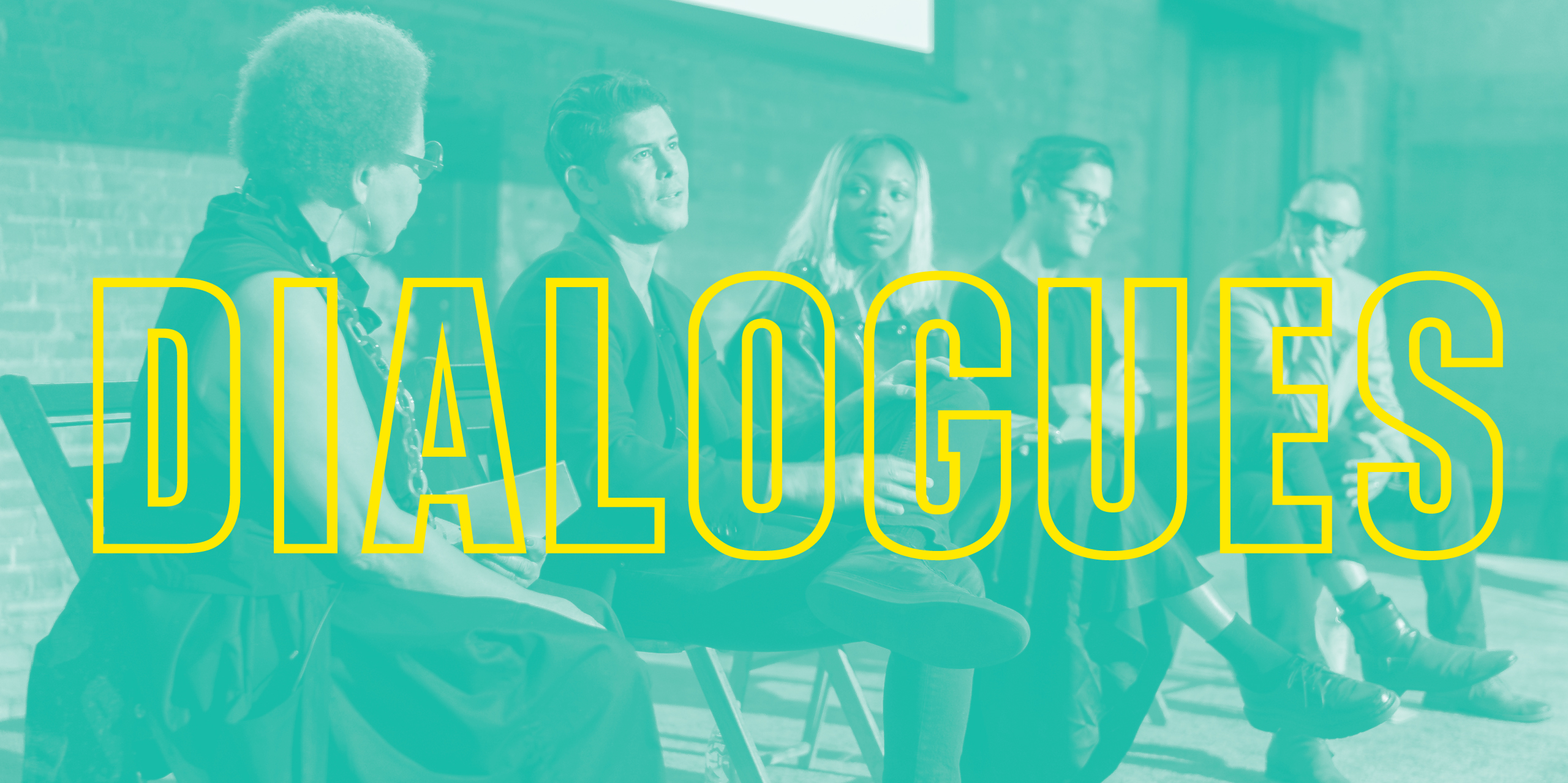

We use our visionary abilities to imagine, design, and create a better world. Historically, art has been defined by its allegiance to and rebellion from classical ideals of beauty, often in pursuit of mythology, structure, and pleasure. As we navigate an era where virtual reality challenges our concepts of authenticity, artificial intelligence calls into question what it means to be human, political and ecological systems place the body in a state of crisis, and the disavowal of science continues–we have to ask: how is technology shaping the future and what is the role of beauty in those processes?
Whether an inventor of kinetic sculpture inspired by science fiction; an anthropologist crowdsourcing images to examine the origins of a national tragedy, or an artist confronting assumptions of identity through the "biopolitics of the senses", The Aesthetics of Tomorrow, features artists and theorists working on the cusp of technological innovation.
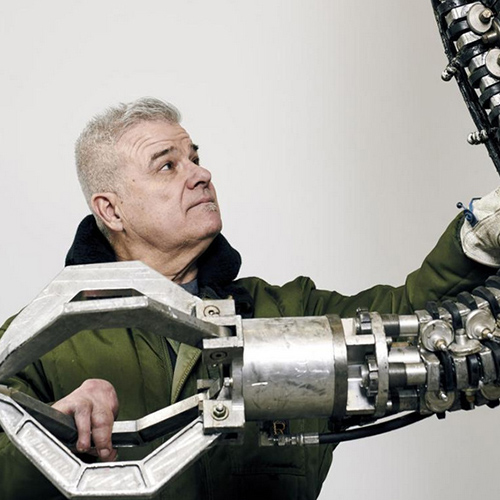
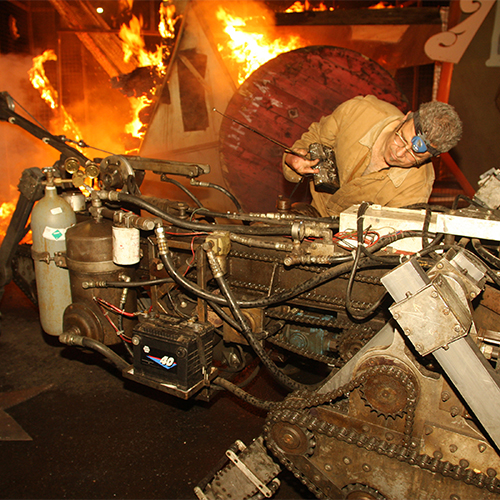
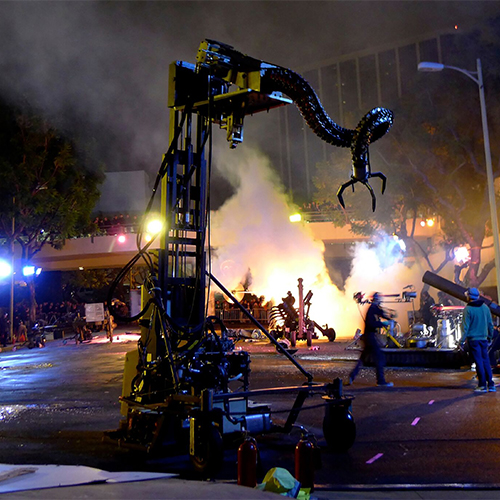
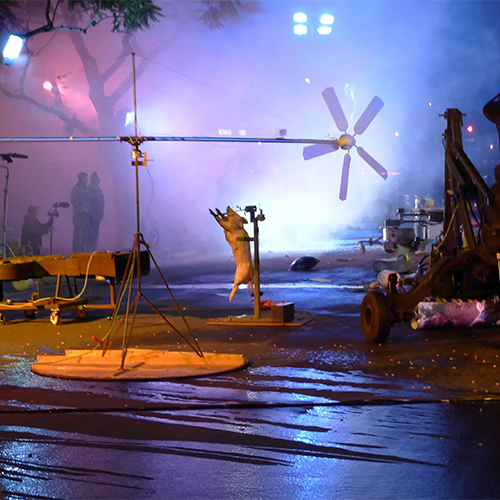
Survival Research Laboratories was conceived of and founded by Mark Pauline in November 1978. Since its inception, SRL has operated as an organization of creative technicians dedicated to re-directing the techniques, tools, and tenets of industry, science, and the military–away from their typical manifestations in practicality, product or warfare. Since 1979, SRL has staged over 50 mechanized presentations in the United States and Europe. Each performance consists of a unique set of ritualized interactions between machines, robots, and special effects devices, employed in developing themes of socio-political satire. Humans are present only as audience or operators.
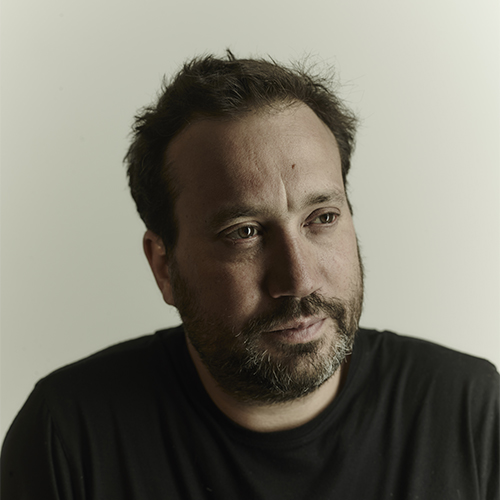
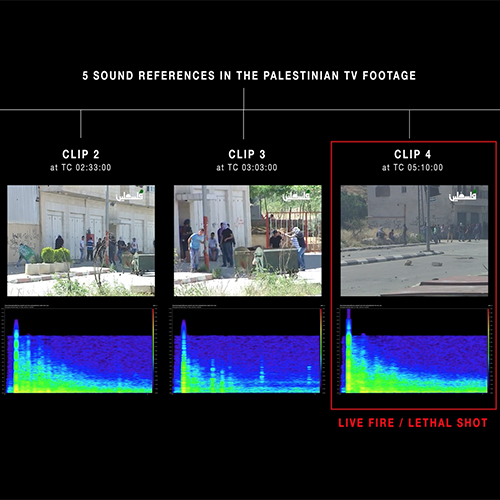
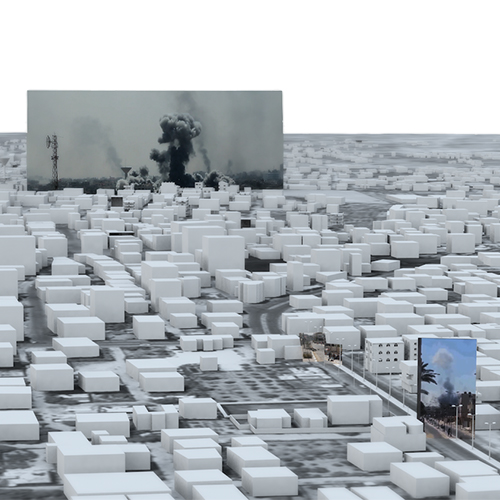
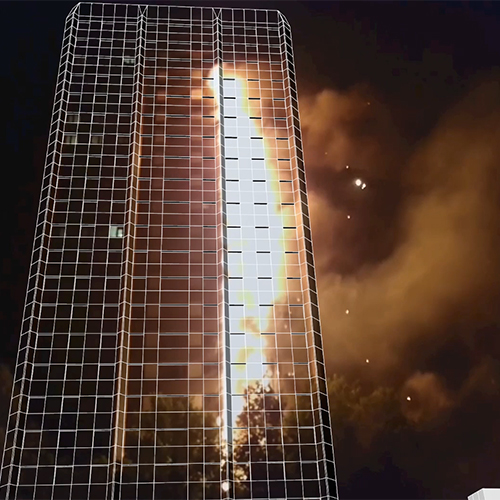
Eyal Weizman is an architect, Professor of Spatial and Visual Cultures, and Director of Forensic Architecture. He is a founding member of the architectural collective DAAR in Beit Sahour/Palestine. His books include Forensic Architecture: Violence at the Threshold of Detectability (2017), The Conflict Shoreline (with Fazal Sheikh, 2015), FORENSIS (with Anselm Franke, 2014), Mengele’s Skull (with Thomas Keenan at Sternberg Press, 2012), Forensic Architecture (dOCUMENTA13 notebook, 2012), The Least of All Possible Evils (Verso 2011), Hollow Land (Verso, 2007), A Civilian Occupation (Verso, 2003), the series Territories 1, 2 and 3, Yellow Rhythms and many articles in journals, magazines, and edited books. He has worked with a variety of NGOs worldwide and was a member of the B’Tselem board of directors.
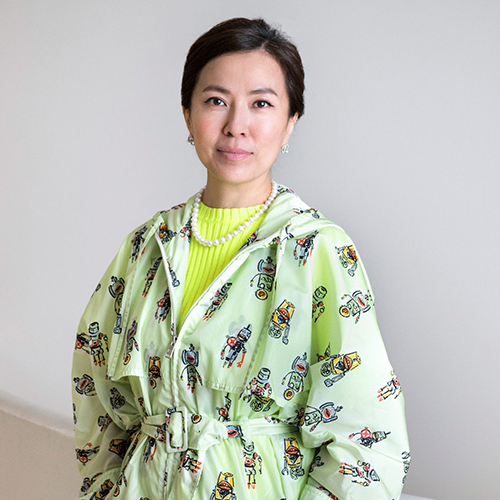
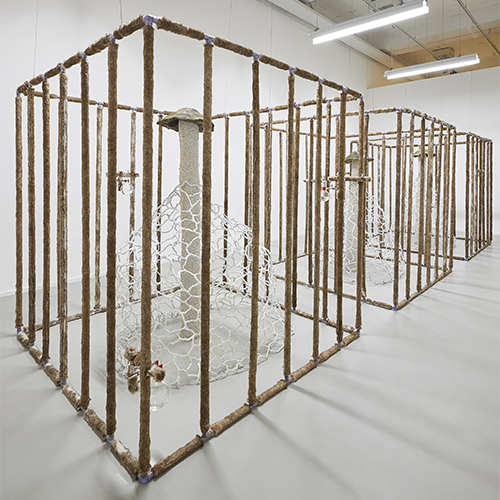

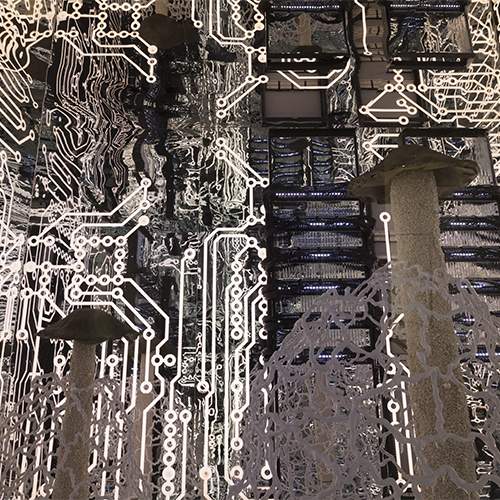
Anicka Yi's practice relates to synthetic biology, bioengineering, extinction, and bio fiction. Her work examines concepts of "the biopolitics of the senses" or how assumptions and anxieties related to gender, race, and class shape physical perception. Anicka Yi lives and works in New York City. Recent institutional solo exhibitions of her work include the Solomon R. Guggenheim Museum, New York; Fridericianum, Kassel; Kunsthalle Basel; List Visual Arts Center, Cambridge, Massachusetts; The Kitchen, New York; and The Cleveland Museum of Art. In 2016, she was awarded the Hugo Boss Prize. Yi has screened her film, The Flavor Genome, at the 2017 Whitney Biennial and the International Film Festival of Rotterdam, 2017. She is represented by 47 Canal, New York.
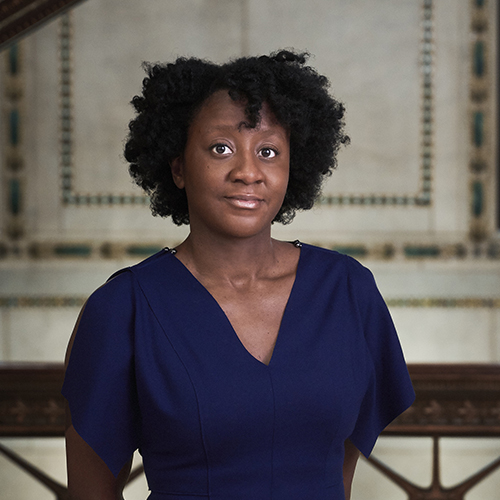
Yesomi Umolu is Artistic Director of the 2019 Chicago Architecture Biennial and Exhibitions Curator at the Reva and David Logan Center for the Arts at the University of Chicago. She directs a program of international contemporary art in the Logan Center Gallery and contributes to a number of strategic committees that drive the development of contemporary art, architecture and urbanism on campus. In addition to her curatorial role, Umolu also holds the position of Lecturer in the Humanities Division. She is a 2016 recipient of an Andy Warhol Foundation for the Visual Arts Curatorial Fellowship.
Specializing in global contemporary art and spatial practices, Umolu recently curated Cinthia Marcelle and Tiago Mata Machado: Divine Violence (2017), Kapwani Kiwanga: The sum and its parts (2017) and So-called Utopias (2015) at the Logan Center Gallery. Prior to joining the Logan, Umolu held curatorial positions at the Edythe Broad Art Museum at MSU; the Walker Art Center, Minneapolis and the European biennial of contemporary art Manifesta 8. Her other notable exhibitions include: Material Effects (MSU Broad, 2015), John Akomfrah: Imaginary Possessions (MSU Broad, 2014), The Land Grant: Forest Law (MSU Broad, 2014), and The Museum of Non Participation: The New Deal (Walker Art Center, 2013).
Umolu has been a visiting lecturer, critic and speaker at a number of international universities including Cranbrook Academy of Art, Bloomfield Hills; Bartlett School of Architecture, University College London and University of the Witwatersrand, Johannesburg, among others. She currently serves on the curatorial advisory board for the United States Pavilion at the 16th Venice Architecture Biennale, commissioned by the School of the Art Institute of Chicago and the University of Chicago.
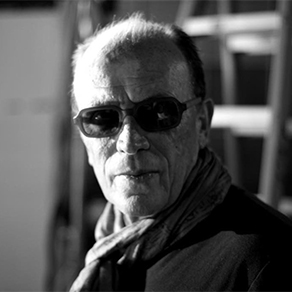
Dr. Peter Weller is an actor, director, jazz musician and published art historian. He holds a PhD from UCLA in Italian Renaissance Art History with a minor in Ancient Roman Art, having received his MFA in the same subjects from Syracuse University in Florence Italy. He studied jazz trumpet at the prestigious music school at University of North Texas, from whom, in 2014, he was honored with the Emerald Eagle. Weller attended the American Academy of Dramatic Arts, studied professionally with the seminal actress and teacher, Uta Hagen, and was inducted into Actors Studio by legendary Elia Kazan. Among New York theater credits are the original productions of David Rabe’s Sticks and Bones and Streamers (directed by Mike Nichols), David Mamet’s The Woods, William Inge’s Summer Brave, William Mastrosimone’s The Wool Gatherer, Richard Nelson’s Frank’s Home and Eric Maria Remarque’s Full Circle, directed by Otto Preminger. Films include Sydney Lumet’s Just Tell Me What You Want, Alan Parker’s Shoot the Moon, Paul Verhoven’s RoboCop, Woody Allen’s Mighty Aphrodite, Michelangelo Antonioni’s Beyond the Clouds, Michael Tolkin’s The New Age, David Cronenberg’s film of William Burroughs formative novel, Naked Lunch as well as starring in the cult-classic, The Adventures of Buckaroo Banzai. He was nominated for an Academy Award for directing the live-action short film of Tom McGuane’s Partners, an Independent Spirit Award for Bernard Rose’s Ivan’s Ecstasy, a SAG Award for Dexter and a Genie Award for Naked Lunch. His directorial episode of Homicide: Life on the Street, entitled HATE CRIMES, as the first primetime Network episode to deal with Anti-Gay violence, received the Nancy Susan Reynolds Award for Civil Rights.